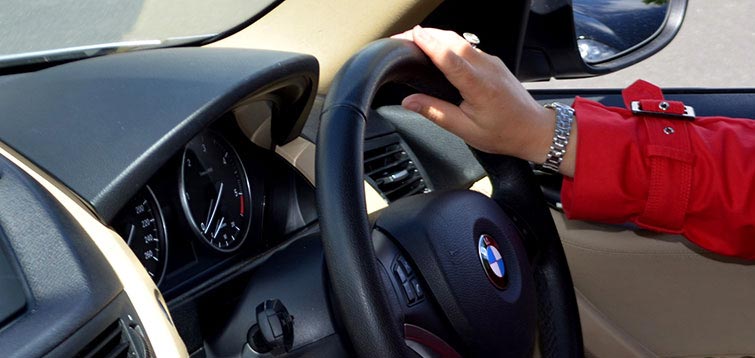Whether you’re a big multinational tech company or a small sole trader delivering fruit and veggies, the need for transportation is something that all businesses have in common.
The trouble is, buying a car outright has always been a huge expense for a business, let alone now when many of us are forced to cut costs wherever possible.
Moreover, even those who had made up their minds to buy a car are now looking into other options because the prices for newer cars in Ireland will only become steeper in 2021.
Luckily, if you run a small or mid-sized business, you have one more thing in common with the big companies. Leasing a fleet can be as cost-efficient for you just as much as it is for larger companies.
How Leasing Works
Leasing a car is similar to renting it for a specific period of time, but it comes with added benefits.
You have the option of purchasing the car at a predetermined amount or returning it to the dealer once the contract period ends. Leasing agreements usually require a very small deposit, but they don’t require equity.
Many people get hung up on the fact that leasing doesn’t make them the actual owner of their vehicle, but ownership often comes with more strings attached.
Even if you have the desired funds to purchase a vehicle without any finance option, you will still have to deal with depreciation costs, maintenance, and vehicle registration tax.
The Major Factors That Determine Lease Payments
-
- Expected mileage: When you lease a car, you and the lessor agree on the number of miles you can drive the vehicle every year.
- The sale price of the vehicle: As with a car purchase, this is negotiated with the dealer.
- Residual value: This is the amount you will pay if you decide to buy the car when the lease ends. Essentially, it’s the value of the car at the end of your lease.
- Rent charge: While car finance loans come with the interest charge shown in percentages, the rent charged is a single fixed monthly fee.
- Taxes and fees: For instance, the road tax could affect the cost of a lease.
- Leasing contract length: The longer the contract period, the lower the payments.
Monthly Payments: Hire Purchase vs Leasing vs Car Finance Loan
Shorter loans and hire purchase agreements come with high-interest rates. Moreover, you have to pay a hefty deposit if you go for a hire purchase contract.
Some businesses opt for a long-term hire purchase contract or car finance loan to get a lower monthly payment. But factors such as fluctuating interest rates make these options riskier.
It’s easy to find yourself in a situation where you owe more than your car is worth. And it can stay like this for quite a while.
If your new car gets stolen or totalled, or if you need to get rid of it early on, the insurance, resale, or trade-in value will probably be less than what you still owe.
Leasing agreements don’t come with such worries, and they come with lower monthly payments. The car’s full value won’t sit on your balance sheet because you only pay for what you use. The bottom line is what really matters in the world of business.
Leasing agreements come with fixed cost motoring. Since there are no payment fluctuations, leasing is a good way to keep business costs under control.
When you choose the car fleet that suits your company best and determine how long you want to keep it, the lessor will calculate how much it will cost you over the period of use.
When you know that your first and final payment will be the same, it’s easier to figure out whether you are actually getting your money’s worth.
Tax Deductions
Many business owners assume that having equity in a company vehicle is the only way to cut your tax bill. In Ireland, companies that lease their vehicles may recover up to 20% of the VAT incurred on the monthly leasing charges you paid.
Vehicles that are intended only for business use, such as vans, can qualify for unrestricted deductions on lease payments.
If you are a sole trader that has leased a car, you won’t need to keep track of what counts as business mileage and what counts as private mileage—benefit-in-kind provisions don’t apply to you. Moreover, you may be able to write off each payment against your income tax.
However, when it comes to wear and tear allowance, it’s better to finance buying a car than to lease it. But, tax-wise, this is pretty much the only significant advantage of buying a vehicle over leasing one.
Maintenance
When you own a car, costly repairs can give you a huge headache. Your main job should be maintaining a successful company, not maintaining your cars. If you decide to lease with us, you can choose to sign a maintenance contract as well.
You can make fixed monthly maintenance payments for the duration of the contract, and we will regularly carry out comprehensive services on your cars and take care of repairs.
That being said, you won’t have to worry about your cars being off the road often as leased vehicles are newer and don’t run into issues so easily.
If you decide to buy the vehicle at the end of your contract, we can continue to manage your vehicle maintenance (and more) as your fleet management partner.
Getting a New Car vs Keeping the Old One
If you would like to drive a new car every few years, a leasing contract is undoubtedly the best option for your business. When your lease contract comes to an end, you can simply return the old car, choose the next one, and negotiate a new agreement.
If you take out a long-term bank loan, but the nature of your business requires you to get new cars every couple of years, you will be paying so much in finance charges.
You can roll your debt into a new bank loan if you cannot pay off the difference on an upside-down loan. But you will end up financing the remainder of your old car as well as your new car.
Holding equity in your car pays off only if you plan to hold on to it for a very long time. You won’t have to worry about mileage or depreciation rates if you plan on keeping it forever.
But if a certain model seems to be the best fit for the current needs of your business, that may not be the case three years from now. Considering that your car will be worth only 40% to 50% of what you paid for it after just three years of ownership, you may not want to take your chances.
Instead of making such a big decision straight away, a lease allows you to drive the car for a couple of years or more first. Let us worry about the residual risk.
By the time your agreement expires, you will know exactly what you can expect from the vehicle and whether paying its residual value is a good decision for your business. If ownership still doesn’t suit you, you can simply give it back.
Negotiating Terms
Don’t assume that the monthly payment featured in a leasing advertisement is set in concrete. Being able to customise your leasing contract pays off much more than customising your new cars, and we’ll be more than happy to prove this.
At Haines Fleet Management we pride ourselves on being able to tailor our Leasing Programs to suit the requirements of our clients. We manage a large number of small to medium-sized fleets for a wide variety of customers all over Ireland.
Some of these customers are domestic and others are International businesses operating in Ireland. Irrespective of the size of your organisation we have a solution that will meet your needs.
With more than 30 years’ experience in creating competitive lease agreements for our customers, we have become experts at sourcing the right vehicles for our clients’ requirements. Where possible we source vehicles locally and we lease both new and used vehicles.
We customise the financing terms of our customers’ fleet leases and provide a range of other management services as part of one simple solution that takes all the headache out of the process for you and your business.
Haines Fleet Management believe in going the extra mile for our clients. Although our minimum leasing term is for two years, we are more than happy to help our existing customers should they require a short term lease on a vehicle.
Conclusion
Leasing is a good way to renew your company fleet without hurting your cash flow. If you work together with your lessor to figure out what’s the best mileage allowance for your business, rest assured that your leasing contract will be better than any finance option out there.
Having a low, predictable monthly payment in unpredictable times makes life much easier. And when the time comes to move on, you won’t have to worry about the vehicle’s trade-in value.

